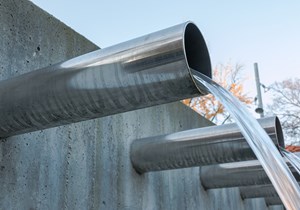EPA launches $7.5 billion WIFIA fund to improve water infrastructure nationwide
(WO) — On Friday, September 6, the U.S. Environmental Protection Agency announced the availability of $7.5 billion of Water Infrastructure Finance and Innovation Act (WIFIA) funding.

The WIFIA program offers long-term loans to help communities implement critical water infrastructure projects, which protect public health, deliver environmental benefits, create over 60,000 good-paying jobs, protect waterways including drinking water sources, and support local economies, at a lower cost.
The WIFIA program provides its borrowers with creative, affordable financing options. It can fund the planning, design, and construction of a wide range of water infrastructure projects and offers the ability to combine multiple projects into a single loan. By streamlining the funding process, communities can accelerate their infrastructure projects.
This is the eighth round of funding available, and it includes $6.5 billion available through WIFIA and $1 billion available through the State Water Infrastructure Financing Authority, known as SWIFIA.
To date, EPA’s WIFIA program has closed loans totaling more than $20 billion to help finance $44 billion in projects across the country. More than 100 borrowers nationwide are utilizing WIFIA loan to finance projects that benefit over 64 million Americans. Completed WIFIA-financed projects show positive health and environmental outcomes, as well as the advantages of financing with WIFIA loans. For example:
City of Tacoma Sewer Utility (Washington) customers have a more reliable, resilient wastewater treatment system because of the completion of the Electrical Distribution System Replacement Project, which modernized the treatment plant’s electrical system. By deferring WIFIA loan repayment for four years after construction completion, the city can pay off existing state-revolving fund (SRF) loans prior to repaying their WIFIA loan.
Related News
From Archive

- Glenfarne Alaska LNG targets late-2026 construction start for 807-mile pipeline project
- U.S. water reuse boom to fuel $47 billion in infrastructure spending through 2035
- $2.3 billion approved to construct 236-mile Texas-to-Gulf gas pipeline
- Major water pipe break in Puerto Rico hits over 165,000 customers
- Potomac River Tunnel project enters construction phase beneath Washington, D.C.
- Pennsylvania American Water launches interactive map to identify, replace lead water service lines
- Trump's tariffs drive $33 million cost increase for Cincinnati sewer project
- Utah city launches historic $70 million tunnel project using box jacking under active rail line
- Tulsa residents warned after sewer lines damaged by boring work
- Fatal trench collapse halts sewer construction in Massachusetts; two workers hospitalized



Comments